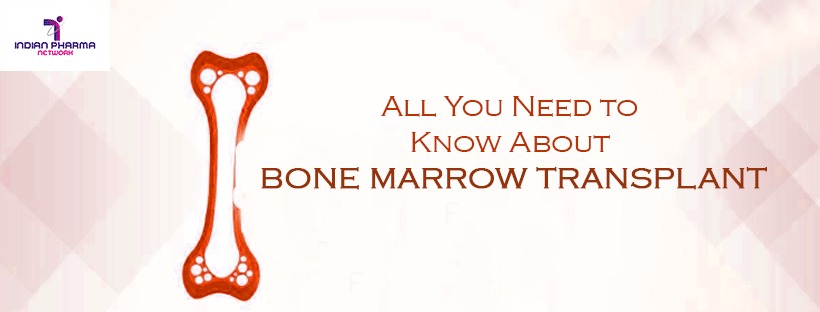All You Need to Know About Bone Marrow Transplant
Detailed reports and information were available to the public in the late 19th century and early 20th century. Experts in medicines named it as a nutrient source which is required for bone marrow. Bone marrow was studied by the medics after the structure of red blood cells were decoded. Therefore, we can say that discovery of RBCs also led to the discovery of bone marrow and the topic was later researched more.
Today, we will be focusing this blog on Bone Marrow and its transplant procedure because bone marrow is an important part of a living being. However, very few of us know, what it is. Let’s start by understanding the concept of bone marrow.
What is Bone Marrow?
A soft tissue enriched with blood vessels found inside the medullary cavity (central cavity of bone shafts) is known as Bone Marrow. It ensures the proper functioning of several body functions. It is responsible for creating RBCs, WBCs, platelets and also helps in containing stem cells which are the most important part of our body.
It is important to keep in mind that several diseases, infections, and even treatments like chemotherapy can cause malfunctioning of the bone marrow. As a result, either RBCs will not get formed or recurring infections will take place, eventually affecting your overall health.
What is Bone Marrow Transplant? Why do You Need One?
When your bone marrow isn’t healthy enough and doesn’t perform in a proper manner leading to life-threatening diseases, like blood cancer and genetic disorders, the bone-marrow transplant becomes necessary.
A healthy bone marrow transplant replaces the damaged cells with healthy cells. It helps your body to make enough white blood cells, platelets, or red blood cells to avoid infections, bleeding disorders, or anaemia. As we know there are certain diseases or disorders which indicate us that a transplant needs to be done, but there are also some other chronic infections, diseases which can cause harm to bone marrow. They include:
- Aplastic anaemia- Bone marrow disorder when it stops making new blood cells.
- Leukaemia, Lymphoma, and Multiple Myeloma
- Damaged bone marrow due to chemotherapy
- Congenital Neutropenia- Disorder that causes recurring infections
- Thalassemia- A blood disorder where the body makes an abnormal form of haemoglobin, an integral part of RBCs.
A Short about Complications with Bone Marrow Transplant
Bone marrow transplant is considered a major medical procedure and increases the risk of some serious complications. Some short-lived symptoms are as follows depending upon your age and health:
- A Drop in Blood Pressure, A Headache
- A Nausea, Pains, Shortness of Breath
- Chills, fevers
Some mild or serious complications include:
- Graft-Versus-Host Disease (GVHD) – in which donor cells attack your body
- Graft Failure Occurs when transplanted cells don’t begin producing new cells.
- Bleeding in parts of the body, such as lungs, brain and many others.
- Occurs damage to vital organs, Anaemia, Early Menopause
- Nausea, Diarrhoea, vomiting, inflammation and soreness in the body.
Types of Bone Marrow Transplants
Depending upon the reasons for a bone marrow transplant, they are basically divided into two categories:
- Autologous Transplants
These are the transplants that involve the use of a person’s stem cells. They typically involve harvesting your cells before beginning a damaging therapy to cells like chemotherapy or radiation. Your cells are returned to your own body, once the treatment is finished. This treatment is only available to those who have healthy bone marrow. It also reduces the risk of some serious complications such as GVHD.
- Allogenic Transplants
These are the transplants that require the involvement of the use of cells from a donor and if the condition has reached to an extent of damaging your bone marrow cells. The donor should be a genetic match. After the treatment, you will be advised some medications which will suppress your immune system so that your body doesn’t attack the new cells. This can result in serious illness.
Preparing for a Bone Marrow Transplant
Before the transplant procedure, the patient will undergo several tests to discover what type of bone marrow cells you need. It is also important to kill all cancer cells through radiation or chemotherapy before getting the new cells. Bone marrow transplants can take up to weeks. Therefore, it is necessary to make arrangements before you or your loved ones’ transplant session. These can include:
- Making housing arrangements nearby hospital.
- Collecting up insurance details coverage, payment of bills, and other financial concerns.
- Care of children or pets.
- Applying for medical Leaves from work.
- Packing up necessities and clothes.
- Making arrangements for travel.
During treatments, your immune system will be compromised, affecting its ability to fight infections. Therefore, you will stay in a special section of the hospital that’s reserved for people receiving bone marrow transplants. This reduces your risk of being exposed to anything that could cause an infection. Some hospitals have counsellors available to talk with patients. The transplant process can be emotionally taxing. Taking to a professional can help you through this process.
Wrap Up
The success of bone marrow transplant is primarily dependent on how closely the donor and recipient genetically match. Typically, the recovery time required for a bone marrow transplant is about three months. However, it may take up to a year for you to recover fully.
As with any surgery like Bone Marrow Transplantation (BMT), prognosis, and long-term survival may vary significantly from patient to patient. Constant follow-up care is necessary for the patient after the transplant.
Bone Marrow Transplants can be a painstaking procedure for the patient and their loved ones also. We, experts at Indian Pharma Network and in the pharmaceutical industry can assist and guide you to the transplants procedure and also make arrangements for all types of life-saving treatments in India.
Visit: https://indianpharmanetwork.co.in/
Or
Call Mr Neeraj Nagpal on 9811747774
Reference Links
- https://www.blkhospital.com/blk-blog/title/make-your-bone-marrow-healthy-again-bone-marrow-transplant
- https://www.cancer.net/blog/2018-08/bone-marrow-transplants-and-older-adults-3-important-questions
- https://www.medlife.com/blog/about-bone-marrow-transplantation-and-donation/
- https://www.mayoclinic.org/tests-procedures/bone-marrow-transplant/about/pac-20384854
- https://www.medicalnewstoday.com/articles/285666#function
- https://www.healthline.com/health/bone-marrow-transplant#outlook
- https://healthlibrary.askapollo.com/bone-marrow-transplantation-all-you-need-to-know/


